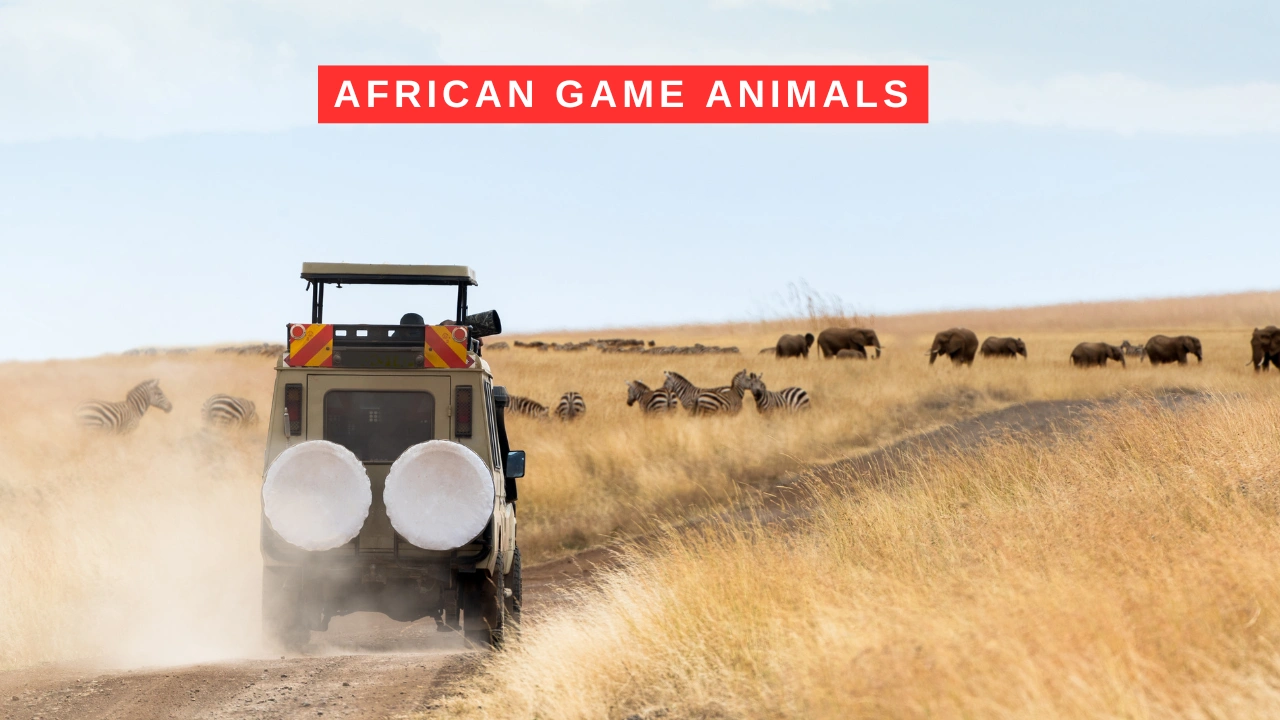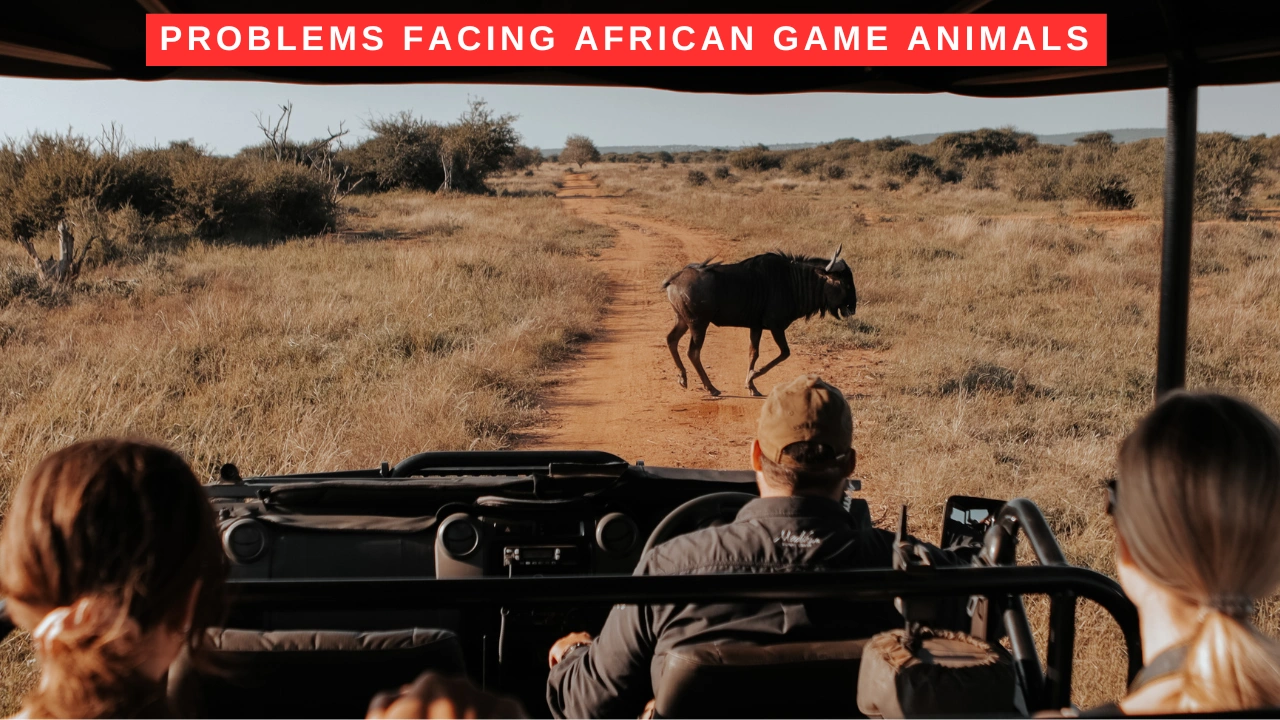African Game Animals: Shape Africa’s Ecosystem

African game animals are some of the most fascinating creatures on Earth. They live across Africa’s vast landscapes, from grassy savannas to dry deserts. These animals are important to Africa’s history, culture, economy, and environment.
Some of them are large and powerful like lions and elephants. Others are small but play a big role in the ecosystem. In this article, we will explore what makes these animals so special, where they live, how they survive, and why protecting them matters.
Read more about games and marketplace of ubisoft and rainbow six siege at r6 marketplace beta
What Are African Game Animals?
African game animals are wild animals that people either hunt or observe on safari. They include famous animals like the lion and elephant, but also smaller ones like the springbok and warthog.
Many countries in Africa protect these animals in national parks and wildlife reserves. Tourists from all over the world visit these places to see them in their natural homes. Game animals are not just exciting to watch—they also keep nature balanced.
The Famous Big Five
When people talk about African game animals, the “Big Five” usually come first. These animals were once the hardest to hunt on foot. Today, they are more famous for being stars of wildlife photography and safaris.
Here are the Big Five:
- Lion: Known as the king of the jungle, lions live in groups called prides. They are powerful hunters.
- Elephant: The African elephant is the largest land animal in the world. It uses its trunk to drink, eat, and greet others.
- Leopard: Leopards are shy and mostly hunt at night. They can drag prey into trees to eat in peace.
- Buffalo: Cape buffalo live in herds and are very strong. They can be dangerous if threatened.
- Rhinoceros: Rhinos are large and have one or two horns. They are sadly hunted for their horns.
These animals are highly protected. They attract thousands of visitors each year, which helps local communities earn money through tourism.
The Plains Game of Africa
Besides the Big Five, many other animals roam the plains and grasslands. These are known as plains game. They are not dangerous to humans but are important to the food chain. Predators like lions and cheetahs depend on them for food.
Plains game includes different kinds of antelopes, zebras, giraffes, and wildebeests. These animals often move in herds for safety. Their grazing helps the land stay healthy by trimming plants and spreading seeds.
Here is a table of some common plains game species:
| Animal | Special Features | Where Found |
|---|---|---|
| Impala | Fast runner with curved horns | Southern and Eastern Africa |
| Wildebeest | Migrates in large groups | Serengeti and Masai Mara |
| Zebra | Black and white stripes for camouflage | Grasslands and woodlands |
| Giraffe | Long neck helps reach tall trees | Savannahs and open forests |
| Kudu | Twisted horns and striped body | Bushlands and hills |
These African game animals support predators and the land around them. Without them, the balance in nature would break.
Small but Mighty: The Little Five
Not all important animals are big. The “Little Five” were named to match the Big Five. They show that even small creatures matter in Africa’s wild world.
The Little Five are:
- Elephant shrew – A small, fast insect-eater.
- Buffalo weaver – A noisy bird that builds messy nests.
- Leopard tortoise – A slow-moving reptile with a spotted shell.
- Antlion – A bug whose larva digs sand traps to catch ants.
- Rhinoceros beetle – A strong beetle with horn-like shapes.
These animals are not often seen on safari, but guides love pointing them out. They teach us that every species, big or small, has value.
Where Do African Game Animals Live?
Africa’s landscape is diverse, and African game animals have adapted to live in many places. Some live in open plains, while others stay in forests, deserts, or wetlands.
Major Habitats
| Habitat | Animals Found There |
|---|---|
| Savannah | Lions, elephants, zebras, giraffes |
| Woodland | Kudus, bushbuck, leopards |
| Desert | Gemsbok, springbok, desert foxes |
| Wetlands | Hippos, crocodiles, antelope like the sitatunga |
Each environment helps support different animals. That’s why protecting different types of land is important for conservation.
How African Game Animals Survive
Animals in Africa face many challenges. To survive, they need special skills and behaviors. Some form large groups to avoid predators. Others hide using colors that match their surroundings.
Elephants use their tusks to dig for water. Wildebeests migrate hundreds of miles to find grass and water. Zebras stick together to confuse predators with their stripes.
Predators like lions and leopards use speed, teamwork, or stealth to hunt. Every animal has its own way of staying alive in the wild.
The Food Chain: Predators and Prey
The food chain connects all life in the wild. African game animals play a big part in this chain. Herbivores like gazelles and impalas eat grass and leaves. Predators like lions and hyenas eat the herbivores.
Even vultures and insects help clean up by feeding on remains. Without these roles, disease could spread and nature would become unbalanced.
Every animal helps maintain the circle of life. This balance is what makes African wildlife so rich and beautiful.
Problems Facing African Game Animals
Sadly, many African game animals face danger from humans. These threats come from several sources:

- Poaching: Rhinos and elephants are hunted for their horns and tusks.
- Habitat loss: Farms and roads take away the land animals need to live.
- Human conflict: Sometimes animals hurt crops or people, leading to problems.
- Climate change: Droughts and floods affect where animals can find food and water.
Conservation groups work hard to solve these issues. They use tools like tracking collars, anti-poaching patrols, and protected parks.
Tourism and Conservation
Tourism is one of the best ways to protect African game animals. Safaris bring money to communities and national parks. When local people benefit from wildlife, they are more likely to protect it.
Many countries use entry fees, wildlife guides, and eco-lodges to support both animals and people. A healthy tourism industry means more money for education, jobs, and animal protection.
African game animals are a source of pride and income for Africa. Protecting them benefits everyone.
Securing the African Wildlife
We must work together to save Africa’s wild animals. Governments, communities, tourists, and even children can make a difference.
Ways to help include:
- Supporting eco-friendly safaris
- Donating to conservation groups
- Teaching others about wildlife
- Reducing products linked to poaching
If we protect their homes and stop illegal hunting, African game animals will thrive. Nature will thank us for generations to come.
Also Read: Wahoo Board Game A Classic Strategy Game for All Ages
Conclusion
African game animals are more than just safari stars. They are important to the planet’s health, Africa’s culture, and future generations. From the powerful Big Five to the clever Little Five, each animal plays a role.
We must protect these creatures and the places they live. Learning about them is the first step. Taking action is the next.
Let us all be part of the journey to save Africa’s wildlife. Together, we can make sure these amazing animals continue to roam the land.






